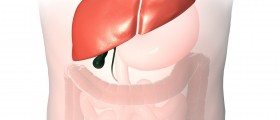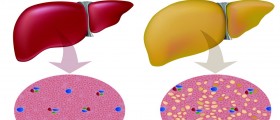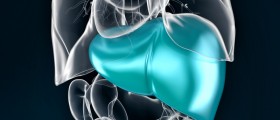
The Liver
The liver is an organ located on the upper right side of the abdomen. It has several roles in the body: keeps glycogen (chemical obtained from sugar), deals with fats and proteins from consumed foods, produces proteins vital for blood coagulation, processes and eliminates drugs, alcohol and toxins from the body, and promotes digestion.
Alcohol Drinking
Alcohol that we intake, enters the bloodstream from stomach and intestines. This blood first goes to the liver and later into the whole system. This is the reason liver is the most affected organ in alcoholics.
Chemicals in the liver cells process alcohol which is then removed via urine and lungs. The liver has its own tempo of metabolizing alcohol thereby if you drink high amount of alcohol in short period of time, liver won’t be able to handle it and you will be intoxicated.
Moderate alcohol drinking is beneficial to general health whilst heavy drinking can lead to:Alcoholic liver diseaseStomach conditionsInflammation of pancreas (pancreatitis)Anxiety and depressionHeart conditionsImpotenceHypertensionFatnessBirth defectsAddictionNervous tissue damagesAlcoholic liver disease is the major cause for liver disease in developed countries. Excess alcohol in the liver can cause fatty liver, hepatitis and cirrhosis.
Fatty Liver
Fatty liver is the result of accumulated fat inside liver cells. It often goes without symptoms and can be cured after quitting alcohol. On the other hand, fatty liver can cause hepatitis.
Hepatitis
Hepatitis is actually a liver inflammation. Mild hepatitis is usually not accompanied with severe symptoms but sometimes can result in cirrhosis if it’s chronic. More serious hepatitis can be recognized by patient's yellow skin (jaundice), sickness and painful liver. Severe hepatitis causes liver failure and can be lethal.
Cirrhosis
Cirrhosis represents liver damage due to scar tissue. Scar tissue causes inability of liver to fulfill its role. As cirrhosis develops, liver cells die. Cirrhosis usually develops due to many years of heavy drinking and it is frequent among alcoholics. Apart from this, cirrhosis can occur as a consequence of chronic viral hepatitis, problems in metabolism or genetically related disease. Cirrhosis can severely damage the liver and result in liver failure. Signs and symptoms can be noticed when disease is in advanced stage. It is generally irreversible and sometimes liver transplantation is the only solution.
Diagnosis of Alcoholic Liver Disease
Diagnosis of alcoholic liver disease must include: physical exam (in order to confirm enlarged liver), blood tests (in order to check liver function), ultrasound scan (shows appearance of the liver) and biopsy (to analyze liver sample under microscope).

















Your thoughts on this
Loading...